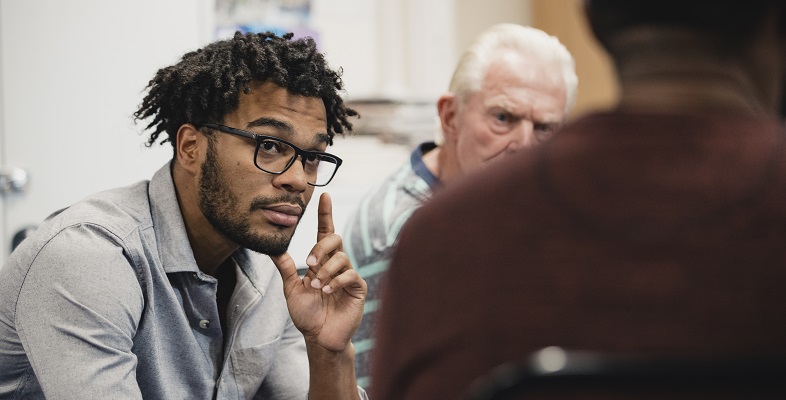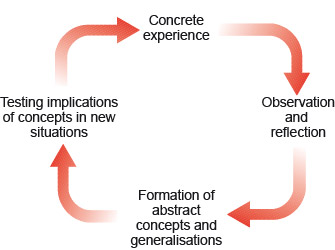Developing your own reflective skills
An important aspect of developing your own reflective skills is that you try this for yourself on any aspect of your experiences.
Activity 11 Reflecting on your own practice
Think of a situation that you found difficult when you first attempted it, such as your first time doing something new, meeting someone who was using the service for the first time, or a situation where you or somebody else became upset in some way.
Use the stages in Kolb’s cycle of learning to help you reflect on what happened.
Using the questions below, try to recall what emotions, thoughts or reflections the situation prompted in you and what you learned from the experience.
How did you deal with a similar situation the next time you encountered it?
- Describe the concrete experience.
- What observations and reflections did you take away from the experience?
- What abstract concepts and generalisations might you formulate?
- What are the implications for new situations?
Discussion
Hopefully by working through this exercise you will have recognised that there is nothing mysterious about Kolb’s cycle of learning.
However, reflection is not only about making connections with knowledge; Boud and Knights (1996) described three phases of thinking things through in reflection as:
returning to an experience
attending to feelings connected to the experience
re-evaluating the experience through recognising its implications and outcomes.
Boud and Knights’ emphasis on feelings is important, as emotional responses can both influence a worker’s ability to make judgements and lead them to intuitive questioning, which can be very valuable in itself. Social work involves more than simply following procedures; social workers have to think things through, apply lessons from past experience and find new ways to deal with new situations.

